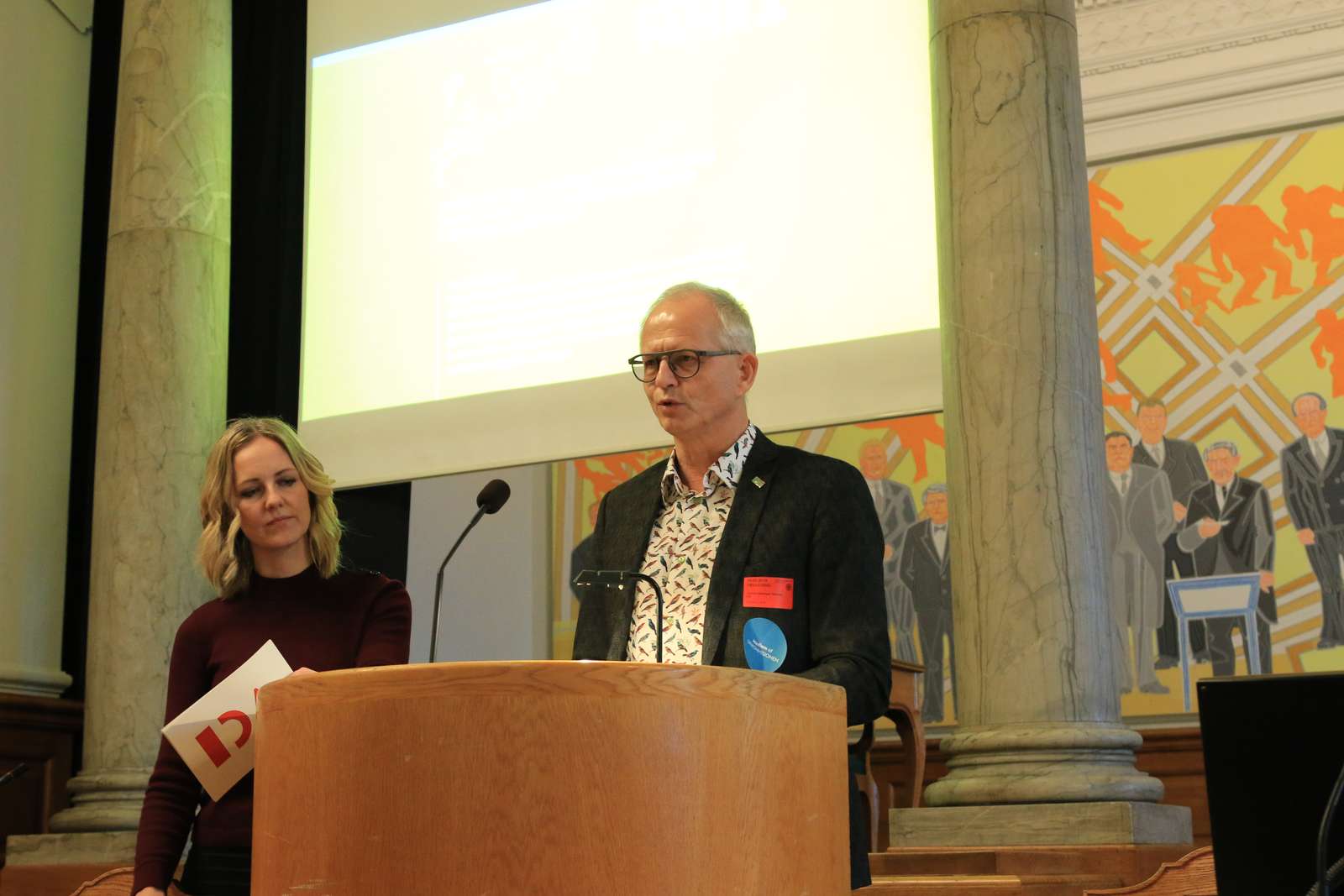Has your union representative made a difference for you and your colleagues? Then you can say thank you by nominating them for the Union Representative of the Year award.
News
What is the Siri-Committee?
The Siri-Committee was set up in the summer of 2016 by Ida Auken, MP and member of the center-left Social Liberal party (Radikale Venstre) and Thomas Damkjær Petersen, Chairman of The Danish Society of Engineers (IDA).

Ida Auken, MP for Radikale Venstre and Thomas Damkjær Petersen, Chairman of IDA, provides the background for the establishment of the Siri-Committee.
“My 5-year-old son has long conversations with Siri. Siri is the voice-activated assistant on my iPhone that can both call people and search the web for you. If I ask her to find a website, she quickly opens a browser and finds it. She also politely responds when I ask her how she is: "I'm fine, Ida".
This is an ordinary day’s event that led to an idea – to establish a Siri-Committee to study what artificial intelligence really means for our lives. Because Siri is not just the polite helper on the phone - just like IBM's Watson isn't just a computer that can win both chess and Jeopardy.
It is probably more like the beginning of reconsidering our education, our working life and our daily lives.
For Danes with manufacturing jobs, this is nothing new. The robots have entered the sector among an increasing number of Danish companies. They are taking over jobs, changing jobs and creating new jobs. It probably may be a surprise to anyone, but knowledge workers are also being affected.
The machines can not only move heavier things than us, they can also do calculations much faster than us and handle a much larger amount of information. And the most sophisticated machines can also understand us when we talk. Understand what it is we want and what kind of information we are asking for, even when we ask in common oral language and without programming. It presents a challenge for even the most intelligent and respected people in the country - but it also gives us new opportunities.
We all want to feel indispensable. And so, we should feel that way - but it is necessary to understand all those new opportunities that we are now facing to make us indispensable. Klaus Schwab, founder of the World Economic Forum, estimates that digital disruption will cause the loss of 7.1 million jobs by 2020 - of which 2/3 are office and administrative jobs - and that 65% of children entering primary school today will ultimately end up working in completely new job types that don't yet exist.
In Denmark, HK estimates that 730,000 jobs will be automated over the next 20 years, while Cevea estimates that up to 900,000 jobs are at risk of being automated. This corresponds to approximately one third of all Danish jobs. But part of the same story is that this is also how the unfolding of previous industrial revolutions was predicted. Perhaps the answer is that we need to work more side by side with artificial intelligence and that the important task is therefore to determine how artificial intelligence can support us.
The 4th Industrial Revolution
The goal of the Siri-Committee is to look at what the global trends, also called the 4th Industrial Revolution, entail, and what they mean to Denmark. We have seen many studies of what digitalization means to the world. We want to show how Denmark best handles challenges - and not least take advantage of new opportunities at the right time. Find the answer to what we want - what we can do - and how we do it.
As the first step, we have asked 575 executives and high-ranking specialists with engineering or other technical/scientific background and employed in large companies with at least 5 engineers/ MSc to comment on which technology trends will hit their industry within the next 10 years. A WEF's global survey shows that cloud-based technology and mobile Internet are the technological trends that will have the greatest impact within the next decade. Danish engineers and other MSc specialists report that we are got there. They suggest that key trends are big data and computing power, followed by the Internet of Things (Io T) and artificial intelligence.
Like many other academics, Danish engineers and MSc are confident. 49% do not believe that their jobs are at risk. 35% believe there is only a slight chance that technologies like artificial intelligence will take over their jobs within the next 5-10 years. However, they are a little more reserved about their own skills to cope with those changes that will come. 54% believe that they only have the right skills to a low or to some extent.
Here is the first indication to the members of the Siri-Committee about the importance of trying to define what competencies need to be strengthened in both children and adults. Should we specialize even more technically and scientifically? Or should we learn the art of coexisting - and coexist together? Should the word formation be redefined? Or is the most important thing that we learn how to learn?
Our aim with the committee is to provide answers. It requires a wide circle of intelligent people who have agreed to take on the challenge from a wide range of angles. They will meet for the first time on August 17th, 2016 and together we will spend the coming months raising questions and discussing - and making recommendations. Recommendations to Denmark, to the decision-makers and to us and to the challenge of how to best guide the Danes through the next decade of disruption and digital revolution.
July 2016, Ida Auken and Thomas Damkjær Petersen